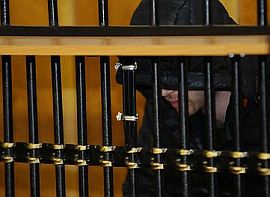Internet, Latvia, Legislation, Security, Technology, USA
International Internet Magazine. Baltic States news & analytics
Sunday, 15.02.2026, 20:20
U.S. promises to guarantee hacker Calovskis' human rights if Latvia extradites him
 Print version
Print version |
|---|
As LETA was informed by Janis Tomels, advisor to Justice Minister Janis Bordans (All for Latvia!-For Fatherland and Freedom/LNNK), the U.S. is in such a way attempting to dispel Latvia's concerns on possible human rights violations against Calovskis if he is extradited.
Asked if extradited and convicted by the U.S., Calovskis will be able to serve his sentence in Latvia, Tomels pointed out in the letter that the U.S. has no objections to this.
Tomels did not reveal any more specific details of the letter's contents.
At the moment it is not yet known when the government will review the request for Calovskis' extradition.
If the government decides to extradite Calovskis, he could face a maximum sentence of 67 years in prison in the United States.
LETA reported previously that U.S. law enforcement institutions announced charges against three alleged East European cyber thieves accused of stealing banking information from computers across Europe and the United States, including Calovskis.
The alleged international cyber criminals were responsible for creating and distributing a computer virus that infected over one million computers – at least 40,000 of which were in the United States – and caused millions in losses by, among other things, stealing online banking credentials, the federal prosecutor's office in Manhattan said.
The defendants allegedly used a malicious computer code or malware dubbed the "Gozi Virus" to hack into bank accounts and "steal millions of dollars," stated the indictment against Calovskis, also known as "Miami", who was arrested in Latvia.
Prosecutors say the scam unfolded between 2005 and March 2012 and that the virus was "virtually undetectable in the computers it infected." First, it was implanted in computers across Europe "on a vast scale," then around 2010 it spread to the United States, the Calovskis indictment said.








 «The Baltic Course» Is Sold and Stays in Business!
«The Baltic Course» Is Sold and Stays in Business!

